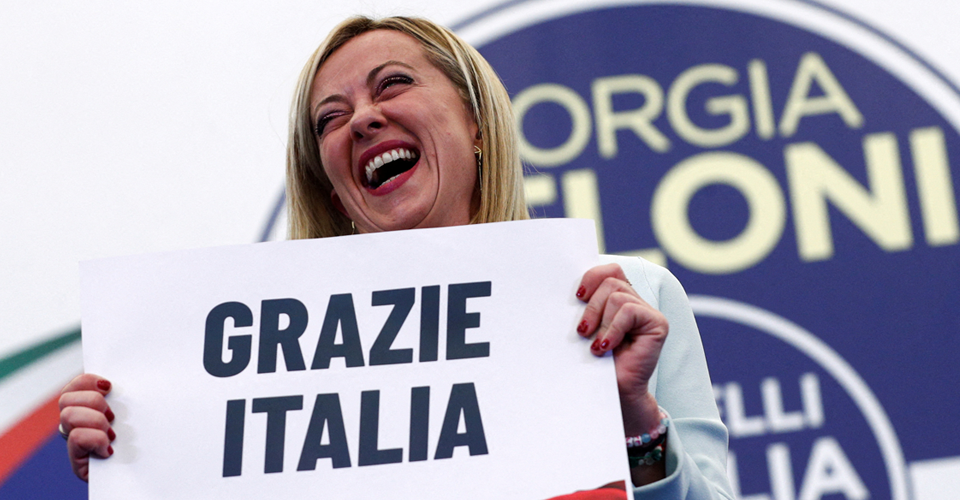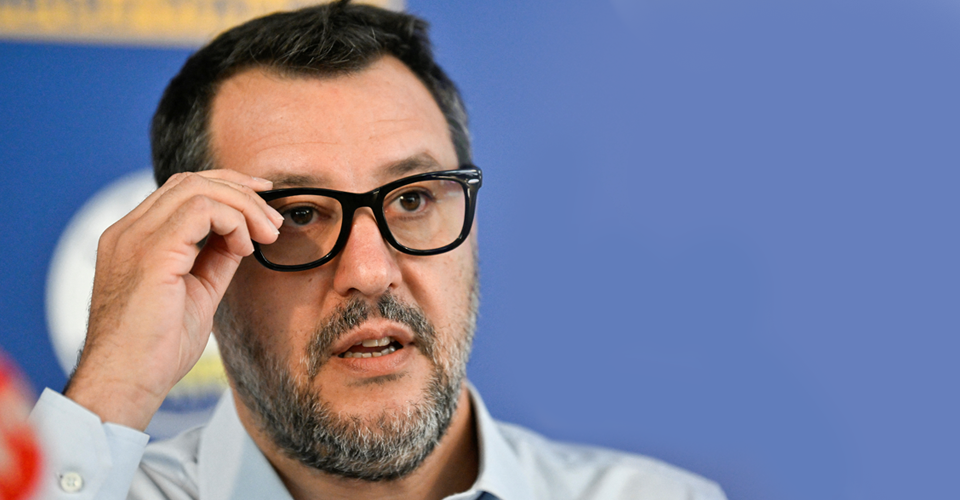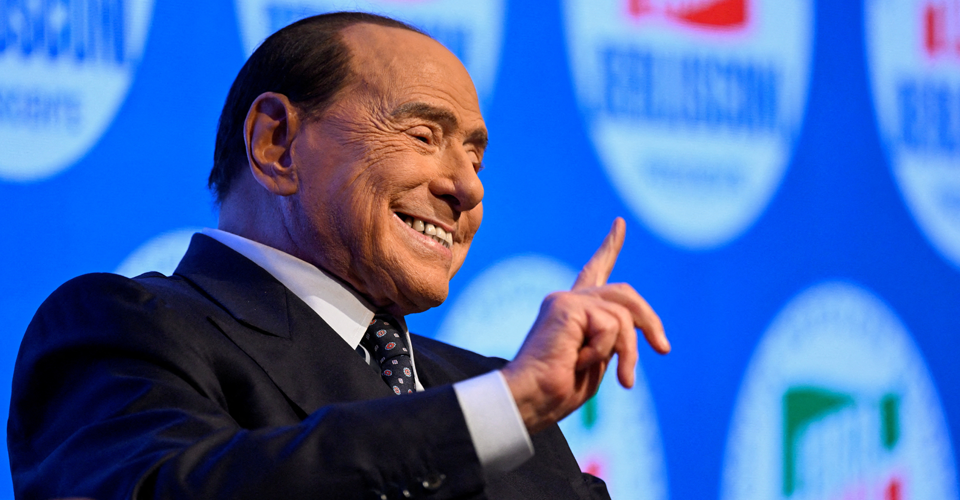
What will be next Italian government's policy towards Ukraine - Italian analyst's forecast
The right-wing party led by Giorgia Meloni will establish a new government in Italy after the country's new parliament was elected. Alberto de Filippis, an Italian journalist and political analyst for Euronews, provided analysis on the outcomes of the Italian parliamentary elections and predicted what the incoming administration's foreign policy and stance toward Ukraine will be.
Espreso: What are the key takeaways of this election in Italy?
Alberto de Filippis: There is a book called the "Leopard" by Giuseppe Tomasi di Lampedusa where the main character explains an Italian truth: "Everything must change so that nothing really changes." It means: if everything changes outwardly, everything remains as it is. This sounds a bit like what happened in these last general elections that saw the victory of Giorgia Meloni.

A 45-year-old woman who could become the first female premier in the history of the Italian republic. What happened last Sunday says a lot about the character of Italians. Once again there is an apparent revolution with the electoral victory of a party, Fratelli d'Italia, which has gone from 3 percent to almost 30 percent in less than a decade.

Another fact is the collapse of Matteo Salvini and his League. This is a regionalist party that has never managed to become a national one. Salvini, who is known for his excellent relations with Vladimir Putin's United Russia party, has never really criticized his Russian friends and has always been ambiguous towards the invasion of Ukraine, going so far as to perform veritable dialectical masterpieces such as when he managed to speak twenty minutes about the war in Ukraine without ever mentioning the name of Vladimir Putin or pronouncing the word “invasion”.
These elections show a desire for change, but they also show the worst of Italy. For example, the electoral system is considered by constitutionalists to be a real scam. Voters could vote for blocked lists, but not choose the name of the candidate. It was the secretaries of the various parties who fulfilled the lists and decided who ended up in parliament. The political offer was so poor that more than 16 million voters did not go to the polls, disgusted with this unseemly theater and the partitocracy, the party regime that controls public life.

Many of those who went to the polls instead, preferred to vote for politicians close to Putin. Silvio Berlusconi at 87 returns to the Senate with Forza Italia snatching more than 8 percent. The elderly billionaire, just a few days ago, had said on TV that: "Putin wanted to replace President Zelensky with a government of decent people." A declaration criticized in Europe. No reaction among his voters.
Another success was that of the Five-Way Movement led by former Prime Minister Giuseppe Conte. A politician who has always criticized the sending of arms to Kyiv and who, during the covid, allowed Russian military contingents to come to Italy, officially to help in the fight against the pandemic, in reality, as has been proven, to try to steal Italian defense secrets.
The center-left, on the other hand, comes out with broken bones. In the aftermath of the vote, Enrico Letta announced that he is leaving the leadership of the Democratic Party. Unlike Matteo Salvini, who instead seems to have nailed himself to the chair as leader of the League. Moscow also has many friends on the left. Over the years Kremlin emissaries have infiltrated parties as well as ecological organizations and pushed for a one-way pacifism all in an anti-NATO, anti-U.S. and anti-Europe vein.
Far-right Giorgia Meloni is set to be Italy's first female prime minister. What was the key to her success?
Above all, the key to his success has been consistency. In domestic politics. He has led the only party that has always been in opposition even though he has often done so slyly by riding protest against the green pass, against vaccines, against the policies of the Draghi government. She has often given an ambiguous speech. She has been populist in Italy and Atlanticist abroad, but this, in a country like Italy, has made all the difference. She sent clear, simple messages that an older population like Italy's understands: stop immigration, less taxes, less Europe. It may seem like nonsense, but in a country where one of the biggest problems is bad information such a leader had an easy time.
Giorgia Meloni was also helped by her opponents. She, a woman, has been violently and vulgarly attacked especially by the center-left, and this has only pushed voters to vote for her. The paradox is that the first woman premier will probably be a conservative one. The left has never done anything like that. Quite the opposite.
Meloni was close to pro-Putin parties in the EU countries. However, this year, having Russia's war against Ukraine, she voiced her support for Ukraine. What should we expect from Meloni's government?
This is the biggest question mark. On Sept. 15, the European Commission called Viktor Orbán's Hungary a "hybrid regime of electoral autocracy" and denounced the Hungarian government's "deliberate and systematic efforts" against EU values. Meloni and Salvini themselves walked away from that vote, creating several concerns in Europe. The problem of such behavior is not only political, but also and especially economic.
The Commission has not yet given the green light to Hungary's NRP because of irregularities related to respect for the rule of law in the management of funds. If it does not get the green light by the end of the year, Budapest will lose Next Generation Eu funds. The fear of Italian alignment is that a similar fate could befall Rome. During the election campaign, Meloni spoke of "budget variances" or the possibility of spending off-budget in order to meet the needs of Italians. The problem is that if Meloni does not turn away from Orban and if she thinks she can spend the "European" money (EU’s National Recovery and Resilience Plan for Italy) in a different way than what was written in the plans presented by the Draghi government, the European Commission could block the funds. And without that money (209 billion euros) Italy goes bankrupt.
The center-right's victory made Putin's spokesman Dmitri Peskov say, "We are ready to welcome any political force that can go beyond the established mainstream, full of hatred toward our country, and show itself to be more objective and constructive toward" Russia." Moscow's hope is to now have a friendly government in Rome. An unwanted declaration which, if accepted, could be the political end of Giorgia Meloni. It remains to be seen whether she will be able to implement a pro-European, pro-Ukrainian and pro-Atlantic policy.
What coalition should we expect in Italy? Will it be right parties only, or a wider coalition?
As I have already said, the "paradox" of Giorgia Meloni's victory is that she won "in spite of" her allies. She has been attacked almost daily by Matteo Salvini, who also has many enemies within his own party for his pro-Russian line. Silvio Berlusconi. Forza Italia’s leader, considers Giorgia Meloni to be too young and unprepared. In addition, he suffers from machism. Already in the past the billionaire has shown that for him women cannot hold leadership roles, but only expect some rewards. It caused a scandal that Marta Fascina, Berlusconi's very young partner (87 years old he, 32 years old she) was a candidate in Sicily in a constituency where the woman had never set foot (neither during the campaign,nor during her adult life). She was imposed by the founder of Forza Italia.
Berlusconi took a respectable 8 percent, but, out of personal ego, he could also non sustain the Meloni government. It already happened when many of his deputies did not vote confidence in the Draghi government. And Berlusconi was part of the Draghi government.
However, Giorgia Meloni has also shown a certain pragmatism. She knows well that by now the Russian invasion is criticized even by China. She has to keep in check the extreme currents of her party that are anti-NATO and anti-American, and she has to succeed in preventing Russian propaganda, which in Salvini's League, succeeded in penetrating deeply into this party.
How would you evaluate the result of "Lega" with Matteo Salvini?
It seems he was the closest Putin's ally in Italy, and his party fell from 19% of support to 8,5-12,5%. Were his ties with Russia toxic for his campaign, with Russians attacking and invading Ukraine? What's the main reason for his setback? Matteo Salvini has been exaggerating for years. As interior minister in 2019, he walked out of the Conte government he was part of, and caused a political crisis. This political gamble, however, put the League in a corner. Then he has constantly attacked Giorgia Meloni.
Finally, he has never criticized Vladimir Putin and his fierce aggression against Ukraine. On the contrary, he has repeatedly said that the sanctions that are bringing the Russian economy to its knees are actually unnecessary and counterproductive. That Italian companies exporting to Russia represented a gigantic part of the Italian GDP (not true, they represent a few billion euros). Like many Italian politicians he made different statements every day, relying on the poor memory of Italians. After Sunday's bad election results, he has not talked about resigning even though it is likely that his opponents in the party will now call for his head.
- News













































